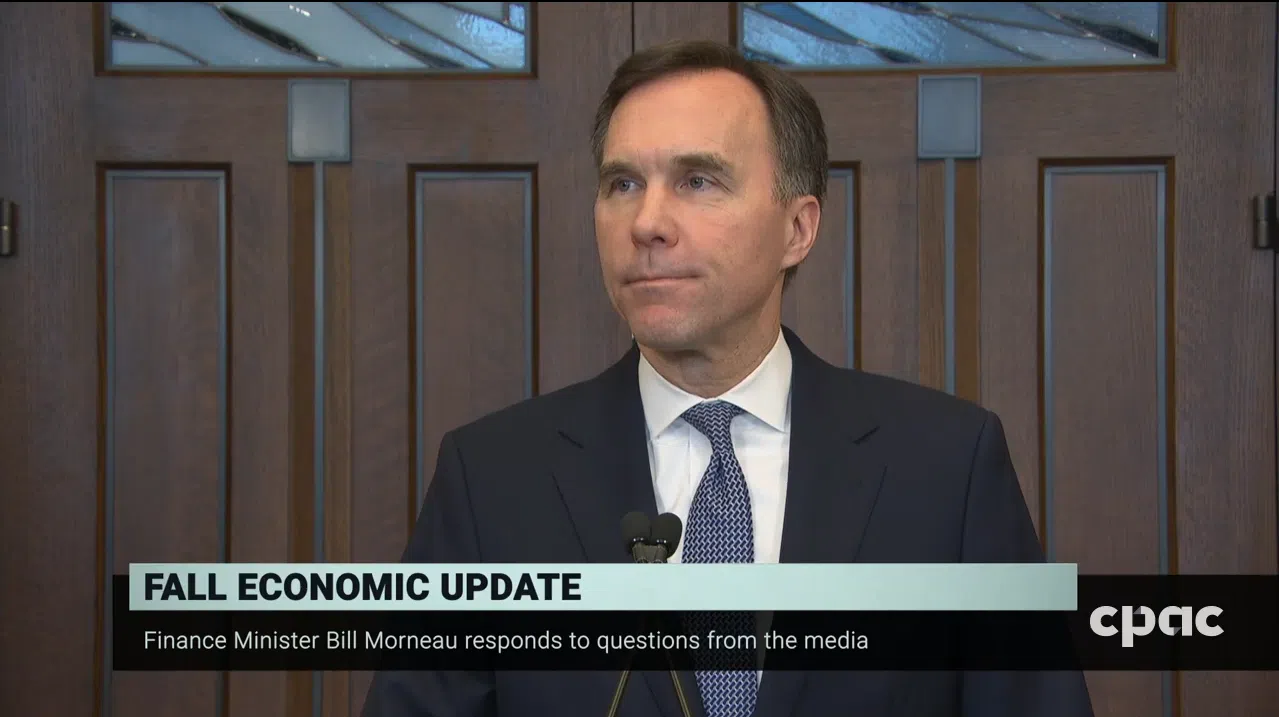
Canada’s Finance Minister has delivered the first fiscal update since this fall’s election.
Bill Morneau says the economy is “strong and growing,” but there are some challenges.
“Challenges in terms of global trade, we have challenges in Alberta and Saskatchewan with changes in the resource sector, but the view is positive”.
Canada is expected to be the second-fastest-growing economy among G7 countries this year and next, according to the update.
The positive growth, Morneau said, is having a good impact on employment levels and wages across the country.
Despite less-than-expected results in November, the country has added 400,000 new jobs so far in 2019, he said.
The economic and fiscal update also showed the national deficit continues to grow.
It is now expected to be $26.6 billion this fiscal year, up from $19.8 billion projected in the budget.
Morneau told reporters there are two main factors changing their deficit projections.
“One is, of course, a tax reduction, which is helping 20-million Canadians. That’s important; it will put significant amounts of money back into people’s pockets and into the economy. Secondly, you’re seeing that low interest rates make pension liabilities higher.”
The federal deficit is expected to drop to $11.6 billion in 2024-25, but there is no timeline for balancing the budget.
Morneau was asked if the uncertainty of a recession over the next five years makes this sort of approach risky.
“We already have the strongest balance sheet among G7 countries, we have the lowest level of debt as a function of our economy, and what we’re projecting is that we’re going to be able to reduce that level of debt as a function of our economy down to 29% during the forecast horizon.”
At the same time, Morneau said they are making investments to grow the economy and manage expenditures.


